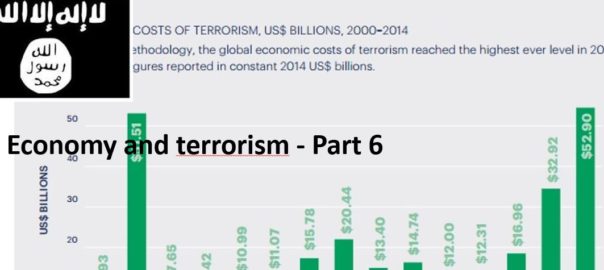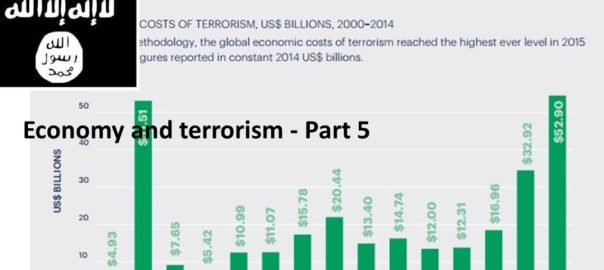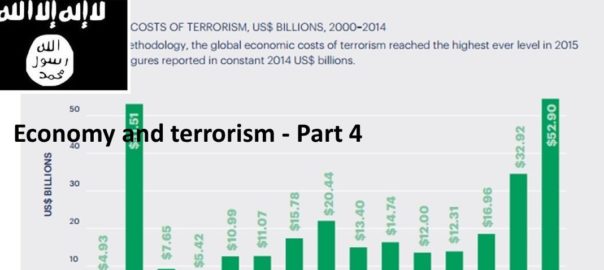Il recente fermo a Bari di Athmane Touami, alias Tomi Mahraz riapre il dibattitto sul ruolo strategico della criminalità organizzata nel fornire documenti falsi ai terroristi. Touami ha avuto un ruolo fondamentale negli attentati a Parigi nel 2015, in particolar modo al Bataclan. Continue reading
All posts by Marco Lombardi
Il vaccino: un farmaco che va oltre la medicina – by Federico Lunardi
La campagna vaccinale tra ritardi, difficoltà e difficoltà organizzative sta prendendo l’avvio anche in Italia, come nel resto del mondo occidentale. Che il vaccino abbia effetto sulla diffusione del virus è sperimentalmente dimostrato dai dati di Israele, del Regno Unito e di parte degli Stati Uniti: non serve quindi parlarne. Continue reading
Diffusione del Covid-19 e attività di ordine pubblico – by F. Bogonovo, L. Cinciripini, M. Zaliani
La pandemia di Covid-19, che dall’inizio del 2020 prosegue senza sosta, ha messo in luce diversi fattori di rischio, tra cui quelli sanitari, sociali e strategici. In particolare, per quanto concerne il rischio strategico è stato evidenziato un impatto significativo sull’efficacia operativa delle forze dell’ordine e di sicurezza e, in questa chiave di lettura, è stato analizzato l’episodio della rivolta di Capitol Hill. Continue reading
Isolamento e contenimento – by Federico Lunardi
Indici, numeri, dati, proiezioni e previsioni. L’epidemiologia si nutre di matematica e statistica e cerca sempre gli indici più affidabili per “pesare” l’oggi e cercare di preconizzare il domani. Ogni malattia infettiva e diffusiva va osservata seguendo differenti parametri perché la fase preclinica (paziente già in contatto con virus o batterio ma asintomatico), la fase clinica (paziente con segni e sintomi), la fase di guarigione (ritorno alla normalità) hanno caratteristiche, durata e contagiosità differente. Continue reading
Il ruolo negletto del crisis management in Italia – by Barbara Lucini
Questo anno pandemico appena trascorso ha mostrato agli occhi di chi si occupa di crisis management come disciplina scientifica, che questa pandemia e la sua gestione verranno ricordate come annus horribilis del crisis management. Continue reading
Covid-19. Emergenza e vaccini – by Federico Lunardi
Quando finisce una pandemia? Difficile dirlo e lo studio della storia non ci aiuta. Il medico può dirlo solo a posteriori quando – dopo un periodo statisticamente significativo consta che i numeri sono costantemente al di sotto dei parametri di riferimento – è in grado di affermare che “a far data da …”. Il sociologo, invece, potrà acclarare che la pandemia è finita, a prescindere dagli indicatori sanitari, quando coglierà un atteggiamento sociale non più condizionato dalla paura o dalla realtà pandemica. Continue reading
Leggiamo l’Intelligence
La bibliografia sulla storia, protagonisti e discipline dell’Intelligence proposta dal Sistema di Informazione per la Sicurezza della Repubblica. Continue reading
EU economic losses in the haze of jihad. Impacts on cryptocurrency businesses (part 6) – by Daniele M. Barone
The exploitation of cryptocurrency for terrorism purposes is an evolving threat. Continue reading
U.S. Capitol events: Lessons for European security – by Maria Chr. Alvanou
The storming of the Capitol has left Americans and the whole world in shock. Political analysts try to explain the severity of what took place and how it impacts democracy. However, there are points and lessons also regarding security, that can be of interest to Europeans. The following are examples. Continue reading
EU economic losses in the haze of jihad. Still stuck in an affordable blame game on content moderation (part 5) – by Daniele M. Barone
In November 2020, following the terrorist attacks in France, Germany, and Austria, the European Council[i] Continue reading
EU economic losses in the haze of jihad: Globalization challenges (part 4) – by Daniele M. Barone
As analyzed in the previous articles, the impact of a terrorist attack can affect a country’s peace dividends[i] and, as a consequence, its whole economy.[ii] Continue reading
Nashville explosion: redefining suicide bombings? – by Maria Chr. Alvanou
Suicide bombings have been a methodology that defined a whole new era, that of “new terrorism”. Although used also by organizations like PKK and LTTE, they became a standard in terrorism literature regarding the toolkit of Islamist terror organizations. Continue reading






